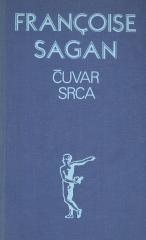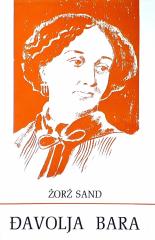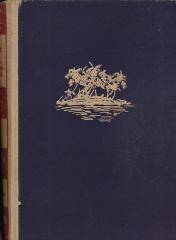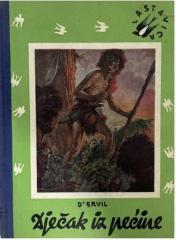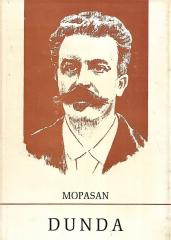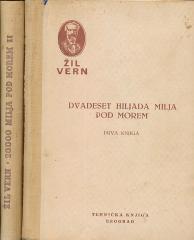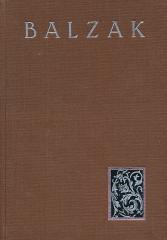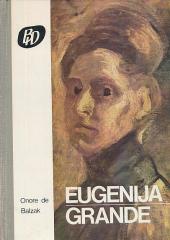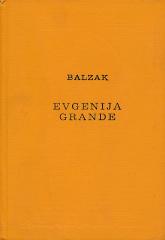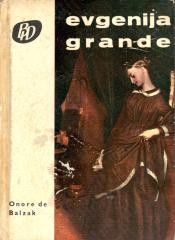Francuska književnost
Čuvar srca
Čuvar srca je roman francuske spisateljice Fransoaz Sagan, objavljen 1968. godine.
Đavolja bara / Mala Fadeta / Nahoče Fransoa
Đavolji bar prikazuje život skromnih seljaka u francuskoj pokrajini Beri. Mala Fadeta je priča o devojčici po imenu Fadet, koju je zajednica odbacila zbog njenog izgleda i ponašanja. Fransoa rado priča priču o siročetu koje je odraslo uz ljubaznost mlade
Djeca kapetana Granta
Klasična „vernevska” avantura u kojoj junaci upadaju u nevolju za nevoljom, puna neverovatnih obrta i opasnih situacija koje čitaoca nerviraju, iako je jasno da priča mora imati srećan kraj.
Dječak iz pećine
The book "Cave Boy" deals with the topic of prehistoric life, showing the adventures and challenges faced by the young protagonist in a cave environment.
Dunda i druge novele
The story is set during the Franco-Prussian War (1870–1871), and begins with the escape of French citizens from Rouen, under Prussian occupation. Among them is Elizabeth Rousset, "Dunda", a girl of easy morals but a kind heart.
Dvadeset hiljada milja pod morem 1-2
A science fiction novel written at the end of the 19th century by the famous French storyteller for children and young adults, Jules Verne, who was also the founder of the science fiction genre.
Eugenija Grande
"Eugénie Grandet" (1833), part of Balzac's Human Comedy, is a realistic novel that explores greed, family relationships, and the sacrifices of love in provincial French society.
Eugenija Grande
"Eugénie Grandet" (1833), part of Balzac's Human Comedy, is a realistic novel that explores greed, family relationships, and the sacrifices of love in provincial French society.
Evgenija Grande
"Eugénie Grandet" (1833), part of Balzac's Human Comedy, is a realistic novel that explores greed, family relationships, and the sacrifices of love in provincial French society.
Evgenija Grande / Muzej starina
In his novels Eugenie Grandet (1833) and The Museum of Antiquities (1837), Balzac explores universal themes of greed, human passions, sacrifice, and moral dilemmas, placing them in different social contexts of 19th-century French society.
Literature
- Aphorisms and jokes
- American literature
- Ancient literature
- Anthology
- Arabic literature
- Adventure novel
- Bosnian literature
- British literature
- Bulgarian literature
- Montenegrin literature
- Documentary literature
- Plays
- Epistolary literature
- Epic Fantasy
- Epic literature
- Erotic Novels
- Essays and diaries
- Fantastic literature
- Movie Script
- A philosophical novel
- Francuska književnost
- Greek literature
- Horror/Gothic
- Croatian literature
- Humor and Satire
- Indian literature
- Iranian literature
- Sayings, thoughts, aphorisms, proverbs
- Japanese literature
- Chinese literature
- Literary criticism
- Teen Novels
- Comedy
- Short stories
- Detective Stories
- Hispanic American literature
- Latin literature
- Romance Novels
- Macedonian literature
- Hungarian literature
- Moral and didactic literature
- Folk literature
- German literature
- Novele
- Poems in prose
- Poetry
- Polish literature
- Portuguese literature
- Proverbs and maxims
- Historical novel
- History of literature
- Short Stories
- A war novel
- Novel
- Russian literature
- Summaries and adaptations of literary works
- Scandinavian literature
- Slovenian literature
- Social literature
- Serbian literature
- Italian literature
- Literary Theory
- Tragedy
- Thriller
- Turkish literature
- Science Fiction
- Czech literature
- School reading
- Spanish literature
- Jewish literature
